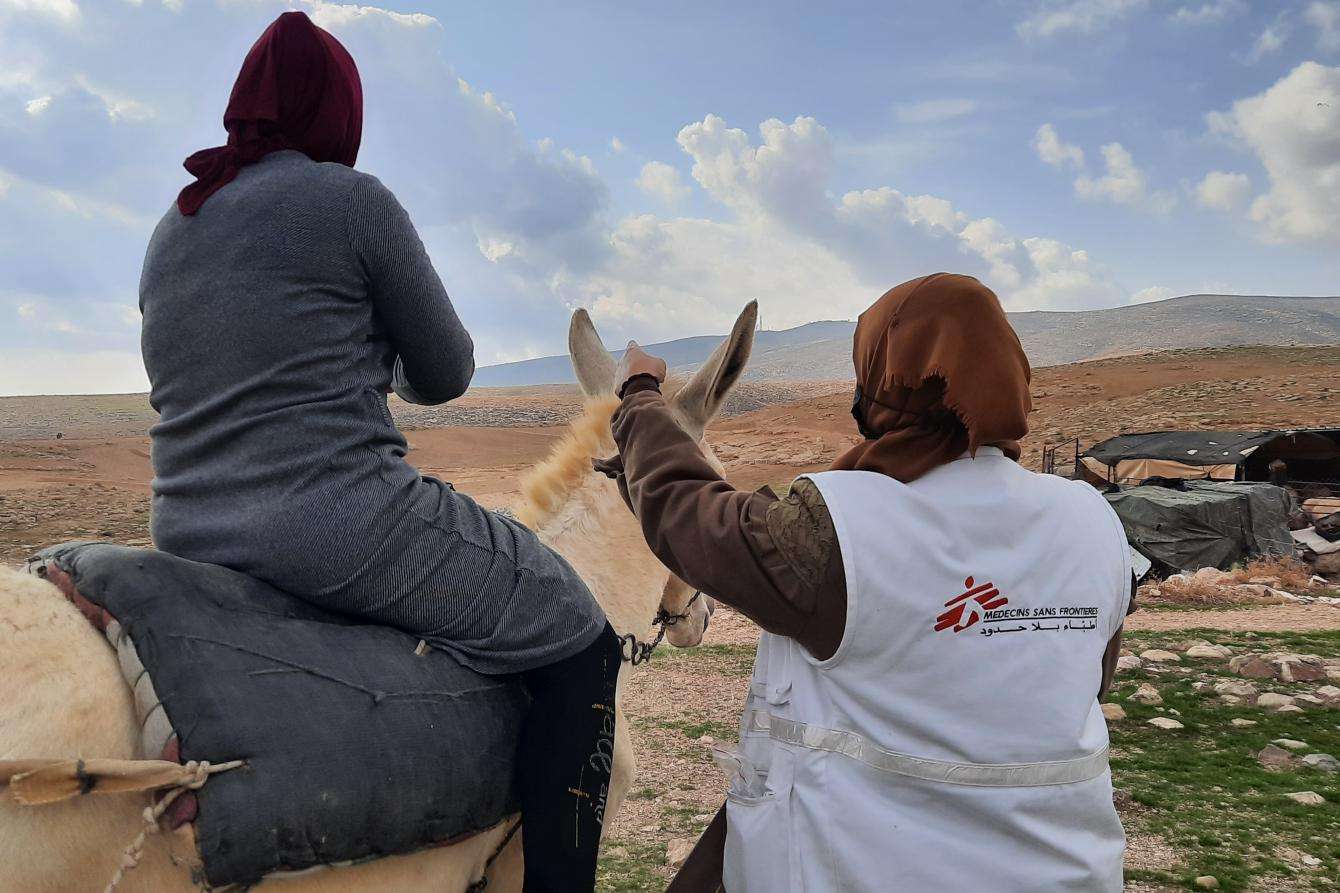Approximately 300,000 Palestinians who live in Area C of the West Bank, a part of the Palestinian Territories under direct Israeli civil and military control, face numerous barriers to accessing basic health care. More than one-third of people in the area depend on mobile clinics for essential health services.
Reaching the nearest clinic is costly and entails traveling long distances with no public transportation. Poor road conditions also prevent ambulances from reaching communities in need, making it especially difficult to seek health services that require regular appointments (such as antenatal care).
In November 2020, Doctors Without Borders/Médecins Sans Frontières (MSF) teams started visiting these communities to provide basic health care, with a range of activities including general outpatient consultations (with a focus on children and patients with chronic communicable diseases), reproductive health, mental health services, and nutritional screening, addition to basic testing.

Bringing health care to communities
For some time, people living in Masafer Yatta in Hebron governorate, an Area C zone, have had almost zero access to medical services. The nongovernmental organizations that ran mobile clinics have suspended their activities for a variety of reasons, including funding cuts and stricter legislation. And the spread of COVID-19 has put even more pressure on the already strained health care system.
Since November, MSF has been regularly visiting Dkaika, Djinba, Khirbet al Fakheit and—as of last week—Um Gussa. Our teams include a medical doctor, a nurse, a midwife, a mental health specialist and a health promoter. Almost 300 consultations have been performed since activities started.
Basic tests are also performed at these clinics and severe cases and people in need of further testing are transferred to the nearest available hospital, in the town of Yatta. Almost 300 consultations have been performed since activities began.
“For one year, no one came here and our people had to go all the way to Yatta to get access to health care services,” said Mohamad Ayoub Hamad, a community leader in Khirbet al Fakheit, where MSF teams perform mobile medical activities. “It was a very difficult situation, especially for pregnant women. Put simply, families without a car really face a big problem.”
“Things are completely different now”
Getting the care they need is even more difficult for women in the area. Men regularly go to Yatta, the nearest town, to buy and sell goods and can seek health services there. But women usually work around the clock on the farms and many don’t seek medical attention until their conditions become serious. Even though there’s no public transport system in Masafer Yatta, cars are considered “illegal,” as they are not registered and can be confiscated at any time.

Rasha [name changed to protect anonymity] traveled to the MSF mobile clinic in Khirbet al Fakheit by donkey from her nearby village. She also recently brought her two children for a check-up at the mobile clinic. “Things are completely different now,” she said. “At least we have a doctor visiting us weekly and we can get medication. Before, if I needed any for myself or the kids, I would go around the village to all the houses to see if the neighbors had some.”
But massive challenges remain. People in Area C are not allowed to build permanent or semi-permanent structures without a permit from Israeli authorities, which are rarely granted. This further complicates the provision of medical services in the region, as even the basic structures that MSF uses for mobile clinics are at constant risk of being demolished. Since 2012, demolition orders have been issued for the school and the clinic next door in Masafer Yatta, which means they could be bulldozed any day.
“We hope that some national organizations or the Palestinian Ministry of Health will soon have the capacity and the funding to provide services again to the communities living in areas like Masafer Yatta,” said Katharina Lange, MSF’s Hebron project coordinator.
MSF started working in the Palestinian Territories in 1989, focusing on delivering primary health care in Gaza. In 1996, mobile clinics started in some Hebron areas (C and H2) and a decade later the activities were handed over to another organization.
In addition to medical activities, MSF also runs mental health programs in Hebron and Nablus, in the West Bank. In Gaza, MSF runs inpatient departments and clinics to treat patients with trauma and burns, providing plastic and orthopedic surgery as well as dressings, physiotherapy, health education, and psychosocial support.




